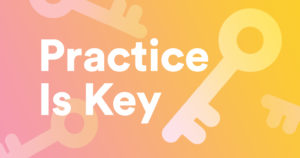There are such a large number of angles/perspectives to chess improvement that it is hard to tell where to begin, yet how about we survey a few general principles that underlie all improvement:
Better players make better moves. Easy. So in the event that you don’t have the foggiest idea how to break down to discover better moves, your improvement will be significantly ruined, to say the least.

You can’t discover better moves on the chance that you don’t take, or have, time to look. So playing every quick game or playing moderate games rapidly likewise enormously upsets any improvement.
Fundamental strategies and security underlie every single great move. Everybody I realize who has become a national champion has gone through years playing in handfuls, if not hundreds, of moderate OTB occasions. With the appearance of the web, it might be conceivable to turn out to be exceptionally solid by “recreating” these moderate occasions on the web, however I don’t know any individual who has done this, and it’s plainly progressively troublesome.

Bobby Fischer went to John Collins’ home each day after school and concentrated with Collins and his other solid understudies, for example, Bill Lombardy. Pretty much every other solid player invest a huge amount of energy “in the chess culture” hanging out and investigating with solid players. So in the event that you think you will find a good pace great by isolating yourself and simply considering chess, well, it’s certainly feasible that you might improve, however it’s profoundly impossible.

Young Fischer playing with John Collins
I have stumbled into the accompanying improvement worldview (thought or strategy) a considerable amount recently:
The average Joe plays many quick or middle of the road (10-30 min) games on the web. He takes exercises from a solid player who shows him openings and explicit endgames like Lucena or Philidor. He contemplates middle of the road strategies. He has lots of time to concentrate however doesn’t play in many, or any, Over-the-Board competitions.
However the average Joe barely ever improves by any means! Perhaps he is 1200, 1500, or possibly he has even found a workable pace (are not total, they are comparative with the rating pool, however that is a story for some other time). Regardless, Joe has gained some ground, yet that bounce up to master or grandmaster level appears to be everlastingly unattainable.
This is happening because in order to improve his playing strength he needs to learn how to analyze effectively.

In my perspective, chess is just around 33% knowledge and 66% skills. What’s more, the primary ability is examination. Of course, knowledge bolsters analysis; for instance, perceiving a tactical pattern and converting that into knowledge about the safety of the move is one of the most important parts of analysis.

The most perilous thing one could do is depending exclusively on strategic plans to decide secure, safe moves. Tactical recognition is critical and crucial to be good at safety determination, yet it’s NOT adequate!
Just because you don’t see danger doesn’t mean it’s not there. On the occasion that you don’t see risk, you can’t finish up claiming there is no security issue; you need to enlarge that search with cautious examination. Great players know this intuitively; so instinctively they neglect to tell their students that reliably setting aside effort to dissect for risk is an essential for good moderate play.

Another enormous point is that practically ALL strategy books are composed from the outlook “The adversary’s position isn’t safe. You are to play and win (or mate)”. This is a very bad way of approaching chess. To start with, in a genuine game you are not given any necessities/information when given the adversary’s turn. I think everybody comprehends this issue.
Asking the average Joe the reason they lost and they answer “I missed a strategy” and on specifying the question and making a clear distinction by saying ” Did you miss a strategy you could have played (offense), or did you make a hazardous move that permitted a strategy for the adversary that you missed but he hadn’t? ” Try to question yourself in a transparent way more often.

The appropriate response is quite often the last mentioned. The player didn’t verify whether his move was sheltered or, in the event that he did, he depended on pattern recognition only and didn’t “see” the threat. This happens MUCH less with titled players; they realize that making sure the move they play is safe is really a more significant step than finding if their adversary’s move isn’t protected.
But if pattern recognition is insufficient for determining safety of all candidate moves, and analysis is often required, this takes TIME. It also takes a consistent dedication to performing the safety check for all candidate moves.

Lastly, if you play mostly 20 minute games and the games lasts for an average of 40 moves, that is only 30 seconds per move. In 30 seconds masters can easily determine if multiple candidate moves are safe, but they can hardly easily determine which one(s) are best. That just takes TIME, no matter how good you are. But amateurs have trouble determining if one candidate move is safe in 30 seconds, much less multiple ones, much less finding which among the safe ones are best.
This is why the average Joe is stuck. He doesn’t calculate all his candidates moves. On top of that, he doesn’t make sure that all his candidate moves are safe simply because he doesn’t have enough time and experience to do so. So in the end, all this talk leads to one thing ladies and gentlemen: PRACTICE.

My articles are designed so that the reader can practice and engage with the article through chess diagrams and puzzles. However, there are no chess diagrams I have inserted here because I wanted the fundamental concept to be understood first.
My future articles will revolve around this concept, so go read it again if you didn’t understand it crystal clear. And if you want a reminder that I have published an article, you can click on the bell icon which will display a nice chrome notification or subscribe to my mailing list.
Happy Learning,
Yash Mehta





0 Comments